What did the Lithuanian Activist Front (LAF) put in writing concerning its intentions for fellow citizens who were Jews in the days and weeks before the German invaders took actual control of various locations within Lithuania?
The below excerpts are all from the translations from Lithuanian in the English edition of Joseph Levinson’s The Shoah (Holocaust) in Lithuania (Vilna Gaon Jewish State Museum of Lithuania: Vilnius 2006). The full texts (or much larger excerpts) appear on pages 166 to 179 of the book.
—————————————————————————————————————————————————
“After centuries of slavery, Fellow Lithuanian, join the struggle for freedom. The hour of reckoning has come. Someone is on our side. Let us wreak hundredfold vengeance on the Jews and Communists for shedding the innocent blood of our countrymen. Enough of the Jews baking their matzos in Lithuanian blood.”
[before 22 June 1941]
***
“At the hour of reckoning all degenerates, traitors, sellouts, Communists, and Jews will be repaid at the price they themselves have set. […] Judases, your days are numbered. The final hours of enslavement by Jews and Bolsheviks are approaching. After being ravaged and mauled by you, Lithuania is ready to rise up. Freedom will come to us over your corpses. Away with the Jews, Communists and Lithuanian Judases. All hail an independent new Lithuania.”
[before 22 June 1941]
***
“In one year the Jews and Communists have not yet managed to cut from our hearts the thirst for freedom. Let us pay the Jews back in kind — in blood. Let us not make any distinctions among them; all of them rejoiced during our days of woe. Let us pull up by the roots for all time the most hateful parasite of our nation and our exploiter — the Jew. Let us swear to wreak hundredfold vengeance on the Jews and Communists for shedding the innocent blood of our countrymen. […] Our Fellow Lithuanians, if you are still among the living, come forward in the struggle against Jewry. Our Fellow Lithuanians, if you are still among the living, come forward in the struggle against Jewry. Our fellow Lithuanians, let us liberate our fatherland from the Jews. Long Live Independent Lithuania.”
[before 22 June 1941]
***
“Once the campaign from the west has begun, you will be informed about it that very minute by radio or other means. At that point, in the towns, villages and hamlets of occupied Lithuania local uprisings must take place, or more precisely put, the taking of the government into our own hands. Local Communists and other sorts of traitors to Lithuania must immediately be arrested so that not even one of them may avoid retribution for his actions. […] Inform the Jews today that their fate is sealed. Whoever can, therefore, let him get out of Lithuania in order to avoid unnecessary victims. At the decisive moment, take their property into your own hands in order to avoid unnecessary losses.”
[19 March 1941]
***
“Our Lithuanian Brothers and Sisters!
[…] The fateful hour of final reckoning with the Jews has come. Lithuania must be liberated not only from Asiatic Bolshevik slavery but also from the age-old yoke of Jewry. In the name of the entire Lithuanian nation, the Lithuanian Activist Front most solemnly declares […]:
1. The ancient right of refuge in Lithuania, granted to the Jews during the times of Vytautas the Great, is completely and finally revoked.
2. Every Lithuanian Jew without exception is hereby sternly warned to abandon the land of Lithuania without delay.
3. All those Jews who exceptionally distinguished themselves with actions of betraying the Lithuanian state and of persecuting, torturing, or abusing our Lithuanian countrymen will be separately be held accountable and receive the appropriate punishment. It it should become clear that at the fateful hour of reckoning and of Lithuanian rebirth especially guilty Jews are finding opportunities to escape somewhere in secret, it will be the duty of all honorable Lithuanians to take their own measures to apprehend such Jews, and if necessary, carry out the punishment. […]
The Jews are to be expelled completely and for all time. If any one of them should dare to believe that in the new Lithuania he will nevertheless find a refuge of sorts, let hum learn today the irrevocable judgment on the Jews: in the newly restored Lithuania not even one Jew will have either the rights of citizenship or the means of earning a living. In this way, we will rectify past mistakes and repay Jewish villainy. In this way, we will lay a strong foundation for the happy future and creative work of our Aryan nation.”
[not later than 22 June 1941]
„Today, unfortunately, after more than sixty years since the Shoah, the theory of the two (symmetrical) genocides still persists in Lithuania: a poorly masked attempt to justify the mass slaughter of the Jews. Nevertheless, no matter how much anyone attempts to whitewash this theory, the „ears“ of racism stick out of it because the Jews were killed en masse, without even determining their identity, not to mention any kind of court verdict.
In Lithuania after the war, during Soviet times, the events connected with the Jewish Catastrophe could not be researched. They were taboo because the Shoah was regarded as „the slaughter of Soviet people“.
During the 1960s and later, articles appeared in the Lithuanian press about the mass slaughter of Jews here. They mentioned that the killers of the Jews had found refuge in the United States and other Western countries, but the fact of Holocaust itself was circumvented. In essence, these articles were Soviet counterpropaganda inspired by the protests of American Jews against Jewish oppression in the Soviet Union. As an exception, one should note a book published in Lithuania at that time, Ir be ginklo kariai [Soldiers Without Weapons], which has already been mentioned at the beginning of this book.” (page 325)
***
“Meanwhile, as already mentioned, the theory of the two genocides still persists in Lithuania till the present day. Distorting the facts, their nature and scale, its apologists blame the Jews for all the misfortunes that befell Lithuania during the Soviet occupation – the loss of independence, mass repressions, the destruction of the economy, etc. – in order to excuse those Lithuanians who, in collaboration with Nazi executioners, perpetrated the chillingly cruel, total massacre of Jews, of everyone without exception – independently of their age, political and religious views, social origin and status, including even Jews who had fought for Lithuanian independence.
A Jew’s ethnicity was his crime. This was genocide, which has been recognized throughout the world, as already mentioned, as a crime against humanity, a crime that nothing, no circumstances can excuse.
Thus, in essence, the theory of the two genocides represents a cynical attempt by murderers to change places with their victims. The foundation for this theory was laid by the ideologues of the LAF (Lithuanian Activist Front).” (page 327)
***
“The Jews had only these alternatives: to perish or to have a chance of surviving, because getting any sort of help from the West – England, France, the United States – was not, given the situation at that time, realistic. Moreover, did meeting the Soviet Army necessarily mean support for what the stationing of these troops in Lithuania would lead to? After all, no one knew what would happen! (The historian Saulius Sužiedėlis assesses the Lithuanian mood at that time in a similar way: “many Lithuanians awaited liberation from the West, i.e. practically speaking, from Germany”, and as he later notes, such desire “did not necessarily mean sympathy for Nazism.”)” (page 328)

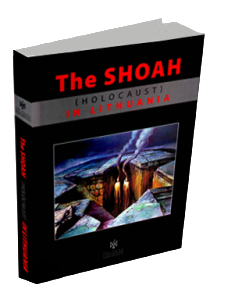
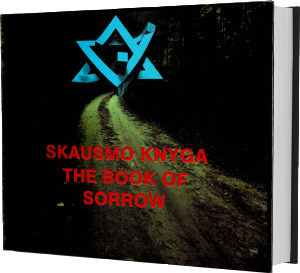
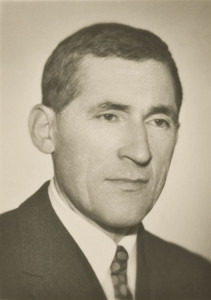
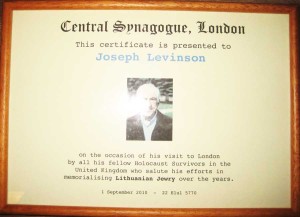

 The Shoah (Holocaust) in Lithuania (PDF version)
The Shoah (Holocaust) in Lithuania (PDF version)
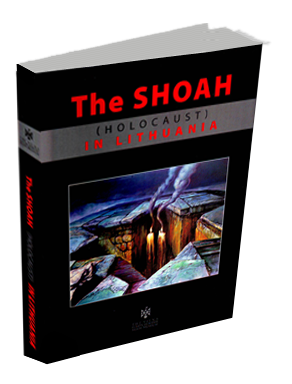 The Shoah (Holocaust) in Lithuania
The Shoah (Holocaust) in Lithuania
 The Book of Sorrow (ePUB format)
The Book of Sorrow (ePUB format)
 The Book of Sorrow
The Book of Sorrow
 The Book of Sorrow (MOBI format)
The Book of Sorrow (MOBI format)